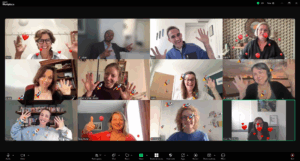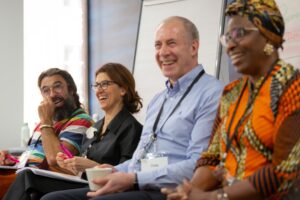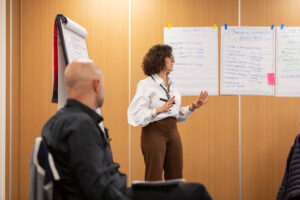The International Day of Happiness is an annual event focused on the concept of happiness as a global human right. First established in 2012 by the United Nations, the event recognises the relevance of happiness and well-being as universal goals and aspirations in the lives of human beings around the world. This year’s theme is, perhaps unsurprisingly, focused on the global recovery from the Covid pandemic.
The pursuit of happiness and health
The first studies of happiness began over 2,500 years ago, with philosophers such as Confucius, Socrates, Aristotle, and Buddha dedicated to the pursuit of happiness. Today, an entire industry has sprung up based on the concept of happiness and how to cultivate it, with the wellness industry as a whole now valued at $4 trillion. We’ve now moved beyond philosophy to understand more about the psychology and science of happiness, with studies providing conclusive evidence that happy people have a better response to stress, fewer health problems and increased life expectancy. But the benefits of happiness beyond extend our personal health and happiness to offering tangible benefits in the workplace, too.
Can workplace happiness impact business productivity?
The reality is that we spend over half our waking lives at work – in excess of 90,000 hours over the course of an average lifetime. If that’s not reason enough to ensure that we are happy and fulfilled at work, it also turns out that there are financial benefits for organisations to strive for a satisfied and engaged workforce.
A study by The University of Warwick revealed that happy workers are up to 12% more productive than unhappy professionals, while the book “The Happiness Advantage” (Shawn Achor, 2011) stated that a company with happy employees could increase their sales by 37% and productivity by 31% simply by building a high-performance work environment and improving the quality of life for employees.
The premise is simple: positive psychology tells us that we are more creative and intelligent when our brains are flooded with happiness instead of anger, fear or stress. By creating a coaching culture, with a focus on team relationships (or Relationships Systems Intelligence to use ORSC language) businesses stand to benefit directly from higher team morale and trust, open communication, more constructive conflict, and improved creativity and innovation.
The burden of the toxic workplace
Many of us will have experienced work environments that are prone to a culture of blame, defensiveness, stonewalling and even contempt. As well as resulting in a breakdown in communication and trust, this kind of toxicity has a direct impact on people’s well-being, happiness and positivity. In turn, this can have a direct influence on retention, productivity and attendance – all of which impact the bottom line.
Relationship systems intelligence – the power of the team
ORSC methodology teaches teams to ‘walk the team toxins grid’, a tool that helps a team to understand and take responsibility for their toxic communication patterns. Key to this is an understanding that toxic behaviour does not rest with any individual, but that it is a team issue and needs to be addressed by the whole team in order to address the underlying issues.
Equally important is the concept of constructive conflict. ‘Conflict is a signal that something new is trying to happen. When handled skillfully, it is the midwife to constructive change.’ CRR Global. ORSC supplies the tools that employees need to communicate effectively, work through conflict, and identify the team toxins and behaviors which impact productivity.
By bringing teams into full alignment on goals and creating a culture of psychological safety, businesses stand to increase the levels of satisfaction in the team, in turn boosting morale, engagement, and productivity. This International Day of Happiness, of all days, is a time to shine a light on the massive impact of culture; a time to reflect on what it takes to achieve employee happiness; a time to focus on creating environments where people can thrive.
Find out more about the next ORSC series here.






